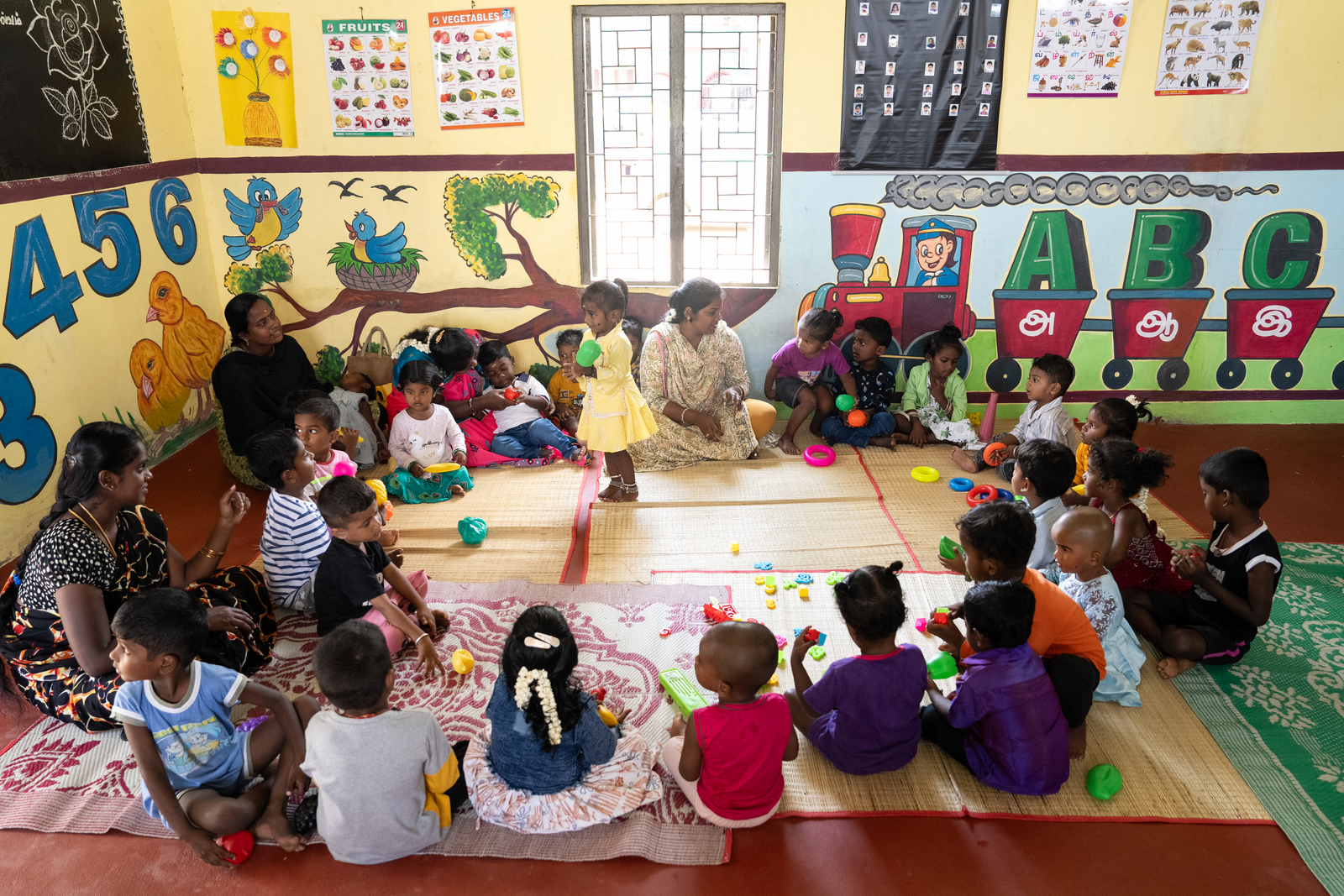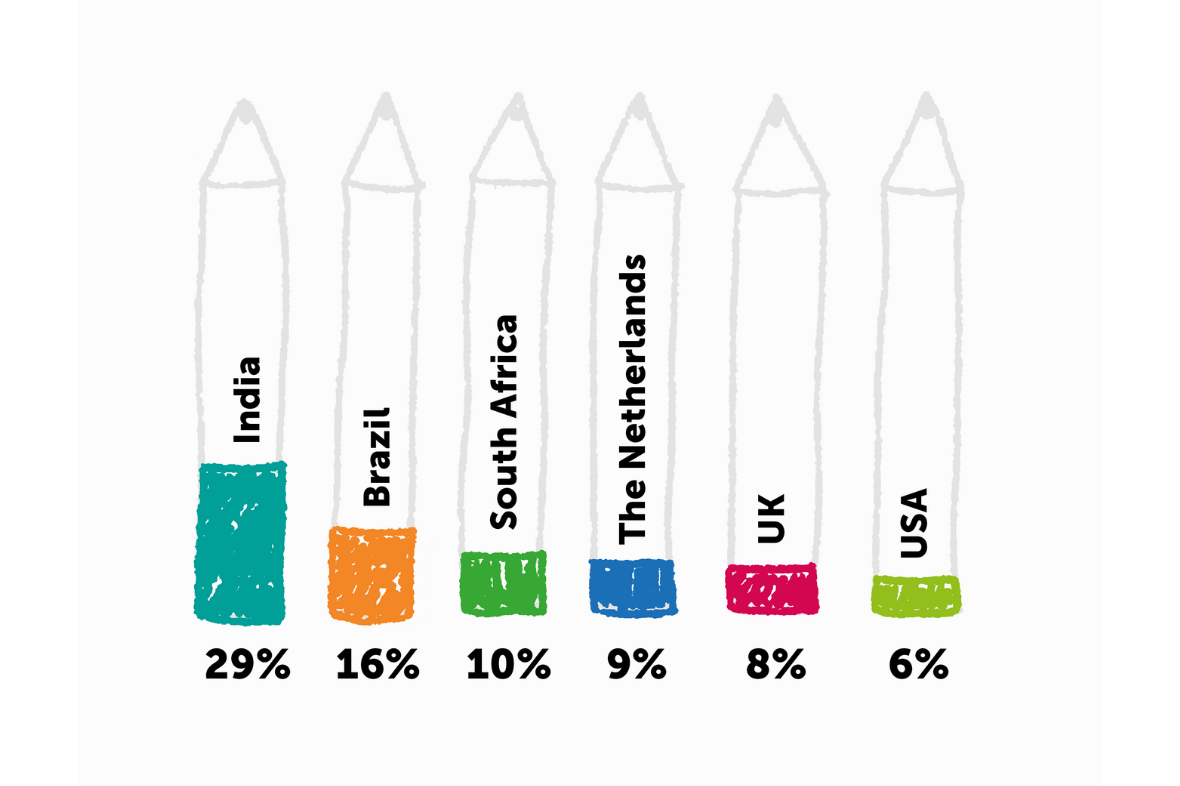Teachers say too many children are not ready to start school

A survey for Theirworld shows that large numbers of new students around the world cannot perform simple tasks such as identifying numbers and letters or washing their hands.
Millions of young children around the world are not developmentally ready when they start school, a Theirworld global survey of teachers has revealed.
The shocking findings show many four and five-year-olds beginning their primary education are unable to wash their hands, go to the toilet independently, identify numbers and letters or read simple words, including their own name.
Only 29% of teachers in India feel most of their children are ready to start classes. But that number is high compared to some other countries – only 6% in the United States, 8% in the United Kingdom, 9% in the Netherlands, 10% in South Africa and 16% in Brazil.
Teachers in several countries say their students are less ready to start primary school than a few years ago. Many highlight low preschool attendance as a key factor, along with the effects of the Covid-19 pandemic.
The survey is published today in the midst of an early years crisis and a chronic lack of investment in pre-primary education. Half of all preschool-aged children around the world are not enrolled in any form of early education.
That’s why Theirworld created the Act For Early Years campaign, which has grown into a global movement. It calls on world leaders to commit at least $1billion in new funding to kickstart the action needed to ensure every child has access to the support needed to thrive in the first five years of their life.
Theirworld President Justin van Fleet, commenting on the survey findings, said that without more investment in children’s early years “the world’s youngest and most vulnerable children will begin their lives at a disadvantage”.
He warned this could have lasting consequences across generations. The survey for Theirworld gauged the opinions of more than 2,500 primary school teachers and support staff in Brazil, India, Netherlands, South Africa, United Kingdom and United States.
Percentage of teachers who feel most children are ready to start school

Asked if they felt 80% of children were ready to start school, only 14% of teachers globally said yes. That was lower in the US (6%), UK (8%), Netherlands (9%) and South Africa (10%). Teachers in Brazil (16%) were slightly more positive – and in India 29% thought that four in five students were ready for school.
When teachers were asked if half of children starting school were struggling developmentally, 48% across the six countries said yes. The breakdown was India 62%, UK 56%, Netherlands 47%, Brazil 45%, South Africa 42% and US 33%.
In India, 70% of teachers said children were more ready to start primary school than a few years ago. But teachers in other countries felt differently. In the US, 78% said children were now less ready – in Brazil that was 64%, UK 60%, Netherlands 55% and South Africa 34%.
Teachers were also asked if not attending preschool frequently enough before starting primary school was a factor in their development struggles. In South Africa 53% said yes, in Brazil 52%, Netherlands 39%, India and US 38% and UK 37%.
Justin van Fleet said there was no funded plan in place to achieve the target of every child having access to quality early childhood development, care and education by 2030, so they are ready to start primary school.
He added: “90% of a child’s brain is developed by the age of five, making the years between birth to school the most important” time in their lives.
“World leaders must wake up to the overwhelming and indisputable evidence that investing in the early years is one of the most cost-effective ways to build healthier, wealthier and greener societies as well as tackle some of the greatest crisis we face, from climate change to rising inequality.
“With millions of children’s futures hanging in the balance, we cannot afford to wait.”